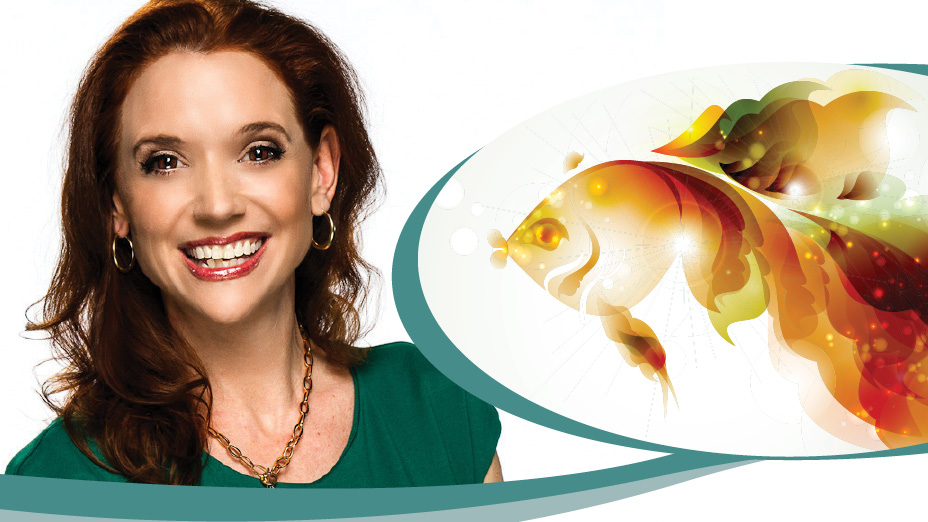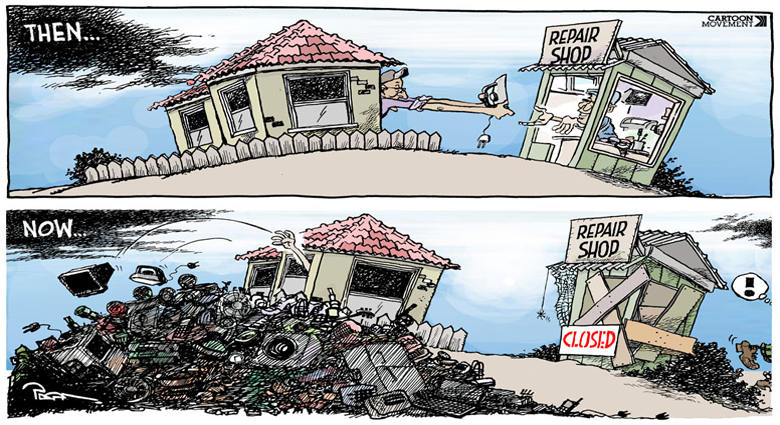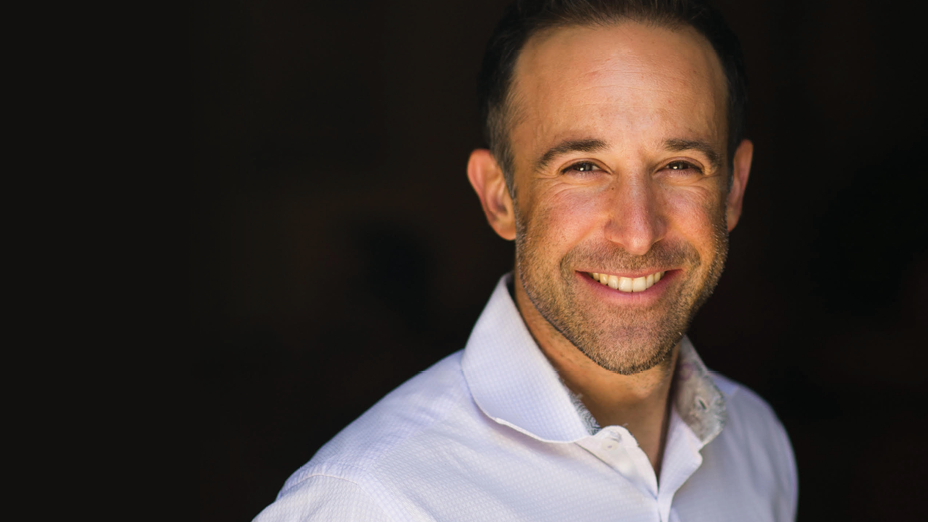A HUNDRED YEARS ago, our attention span averaged twenty minutes: one minute for each year of age, up until age twenty. Things were slower on the farm, with fewer distractions beyond crop rotation and bird migration. But today? Ah, well, things just are a little different.
Hold on-Nine seconds? That's all we get before people's brains make a decision whether to stay focused, or relocate to a new topic? No wonder we're experiencing the symptoms of attention deficit disorder: short attention span, distractibility, and a tendency to be bored. In an ADD world, people leapfrog to the next conversation, the next idea, the next website. (Hello, multi-tasking!) In our chaotic world, our minds and our lives have become so cluttered that we rarely focus on just one thing at any given time.
"The addictive nature of web browsing can leave you with an attention span of nine seconds-the same as a goldfish."
- BBC News
We've thrown open the doors to the short-attention-span theater, and now the show parades around us at a rate of five thousand marketing messages per day, faster than FedEx, louder than Kanye West, bigger than Disney World. Our attention spans are shrinking at a rate inverse to the growing number of distractions. In a this ADD-style world, getting attention is no longer enough. Children get attention when they scream in the candy aisle. Don't Walk signs get our attention when they flash on and off. Marketers get our attention when they offer a discount coupon, or buy TV ads on the Super Bowl, or advertise a two-for- one sale.
It's no longer enough to have an important message, because important messages ideas die every day. But why?
1. An Overload of Distracting Choices
Stimulation is plentiful. Too plentiful. We're drowning in YouTube videos, Zoom meeting requests, opinionated tweets, Instagram photos. In the detergent aisle, we choose from forty-one varieties of Tide. On Netflix, we scroll through seventy thousand titles. On search engines, we can face up to one hundred million results from a single search. Every decision forces us to make choices, and with each of those choices comes stress. Too many messages, too many options, too little time.
2. Earning Attention, Not Paying Attention
Picture attention as a currency. When we pay to see a movie or read a book, we're paying for stimulation. Until fairly recently, this model worked just fine, because there was far more attention available than stimulation to fill that attention. People "paid" attention. But now attention is scarce. It's usually difficult and expensive to convince a consumer to focus on a brand message. Attention has become more important, more rare, and more valuable. To get someone's attention, now a marketer must earn it, often with massive effort and crazy expense. Even if a brand could reach everyone, it still can't break through most of the time. People simply shut out a message by fast-forwarding or clicking to the next one.
3. The Ability to Shut Out Messages
Marketers have to deal with all kinds of "attention gatekeepers" designed to shut out messages: anti-spam legislation, privacy policies, noise-canceling headphones, and pop-up blockers, We all have to move past people's natural resistance, because people can more easily shut out messages. And even if you can get your message through the mental spam filter, you're still a long way from influencing behavior. Assuming you do avoid being ignored, your next challenge is to avoid being forgotten. (If you can avoid being ignored and forgotten, you must still actually make someone act upon your message.)
4. Shift from the Information Age to the Fascination Age
In the last century, information was a scarce resource. Success relied upon capturing and generating information, so information was power. Wars were won with cracked codes and more sophisticated information systems. But information is no longer hard to find. Search engines changed all that. Now, data are a commodity. What's scarce? Complete focus. Information isn't power-the ability to fascinate is power.
5. The Fascination Economy
We once lived in a goods-based economy, then moved to a service-based economy. Then came the information economy, and knowledge economy. More recently, Pine and Gilmore brought us The Experience Economy. Now, as companies struggle for new ways to differentiate themselves, it's a Fascination Economy. Fascination is the means by which companies will be able to charge a premium for products, command more influence in the marketplace, and build more loyal relationships over time. Rather than merely selling goods or services, or even selling experiences, successful brands will begin to charge for the value of their fascination. Companies that can help consumers feel more fascinated in their own lives, or more fascinating in their relationships, will not only win the sale but will earn consumers who actively seek out those products.
BOTTOM LINE: Fascinating People and Companies Win
Most of us, at some point, are trying to get others to "do" something. But we can't get them to do much of anything until they're focused on our message.
They win bigger budgets, more time, better relationships, greater admiration, deeper trust. The ones that fail to connect and stimulate will, increasingly, lose the battle. It's that simple. You can't survive if you can't persuade someone that your message matters.
Most of us, at some point, are trying to get others to "do" something. But we can't get them to do much of anything until they're focused on our message.
People won't change a preference, start a thought process, form a bond, unless they're provoked to change their opinions. What behaviors are you trying to persuade?
And more importantly, how long can you fascinate the goldfish?




.png)

%20(1).png)


What Did You Think?